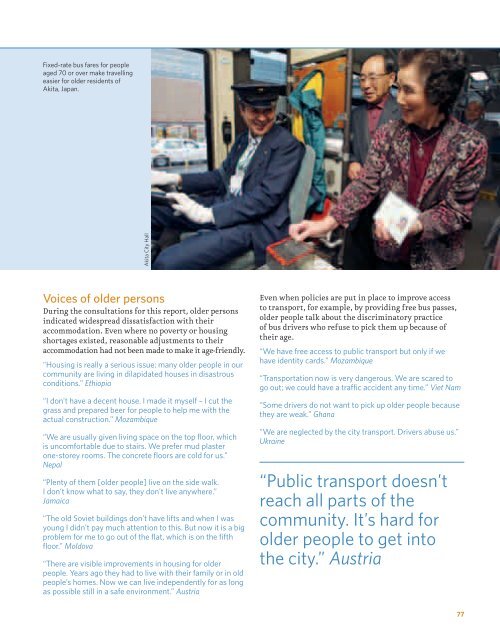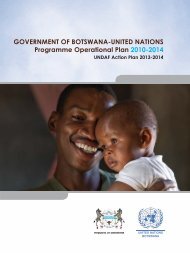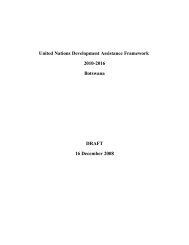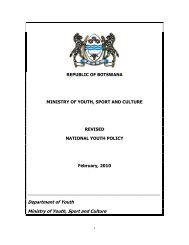Ageing in the Twenty-First Century: - HelpAge International
Ageing in the Twenty-First Century: - HelpAge International
Ageing in the Twenty-First Century: - HelpAge International
Create successful ePaper yourself
Turn your PDF publications into a flip-book with our unique Google optimized e-Paper software.
Fixed-rate bus fares for people<br />
aged 70 or over make travell<strong>in</strong>g<br />
easier for older residents of<br />
Akita, Japan.<br />
Akita City Hall<br />
Voices of older persons<br />
Dur<strong>in</strong>g <strong>the</strong> consultations for this report, older persons<br />
<strong>in</strong>dicated widespread dissatisfaction with <strong>the</strong>ir<br />
accommodation. Even where no poverty or hous<strong>in</strong>g<br />
shortages existed, reasonable adjustments to <strong>the</strong>ir<br />
accommodation had not been made to make it age-friendly.<br />
“Hous<strong>in</strong>g is really a serious issue; many older people <strong>in</strong> our<br />
community are liv<strong>in</strong>g <strong>in</strong> dilapidated houses <strong>in</strong> disastrous<br />
conditions.” Ethiopia<br />
“I don’t have a decent house. I made it myself – I cut <strong>the</strong><br />
grass and prepared beer for people to help me with <strong>the</strong><br />
actual construction.” Mozambique<br />
“We are usually given liv<strong>in</strong>g space on <strong>the</strong> top floor, which<br />
is uncomfortable due to stairs. We prefer mud plaster<br />
one-storey rooms. The concrete floors are cold for us.”<br />
Nepal<br />
“Plenty of <strong>the</strong>m [older people] live on <strong>the</strong> side walk.<br />
I don’t know what to say, <strong>the</strong>y don’t live anywhere.”<br />
Jamaica<br />
“The old Soviet build<strong>in</strong>gs don’t have lifts and when I was<br />
young I didn’t pay much attention to this. But now it is a big<br />
problem for me to go out of <strong>the</strong> flat, which is on <strong>the</strong> fifth<br />
floor.” Moldova<br />
“There are visible improvements <strong>in</strong> hous<strong>in</strong>g for older<br />
people. Years ago <strong>the</strong>y had to live with <strong>the</strong>ir family or <strong>in</strong> old<br />
people’s homes. Now we can live <strong>in</strong>dependently for as long<br />
as possible still <strong>in</strong> a safe environment.” Austria<br />
Even when policies are put <strong>in</strong> place to improve access<br />
to transport, for example, by provid<strong>in</strong>g free bus passes,<br />
older people talk about <strong>the</strong> discrim<strong>in</strong>atory practice<br />
of bus drivers who refuse to pick <strong>the</strong>m up because of<br />
<strong>the</strong>ir age.<br />
“We have free access to public transport but only if we<br />
have identity cards.” Mozambique<br />
“Transportation now is very dangerous. We are scared to<br />
go out; we could have a traffic accident any time.” Viet Nam<br />
“Some drivers do not want to pick up older people because<br />
<strong>the</strong>y are weak.” Ghana<br />
“We are neglected by <strong>the</strong> city transport. Drivers abuse us.”<br />
Ukra<strong>in</strong>e<br />
“Public transport doesn’t<br />
reach all parts of <strong>the</strong><br />
community. It’s hard for<br />
older people to get <strong>in</strong>to<br />
<strong>the</strong> city.” Austria<br />
77







